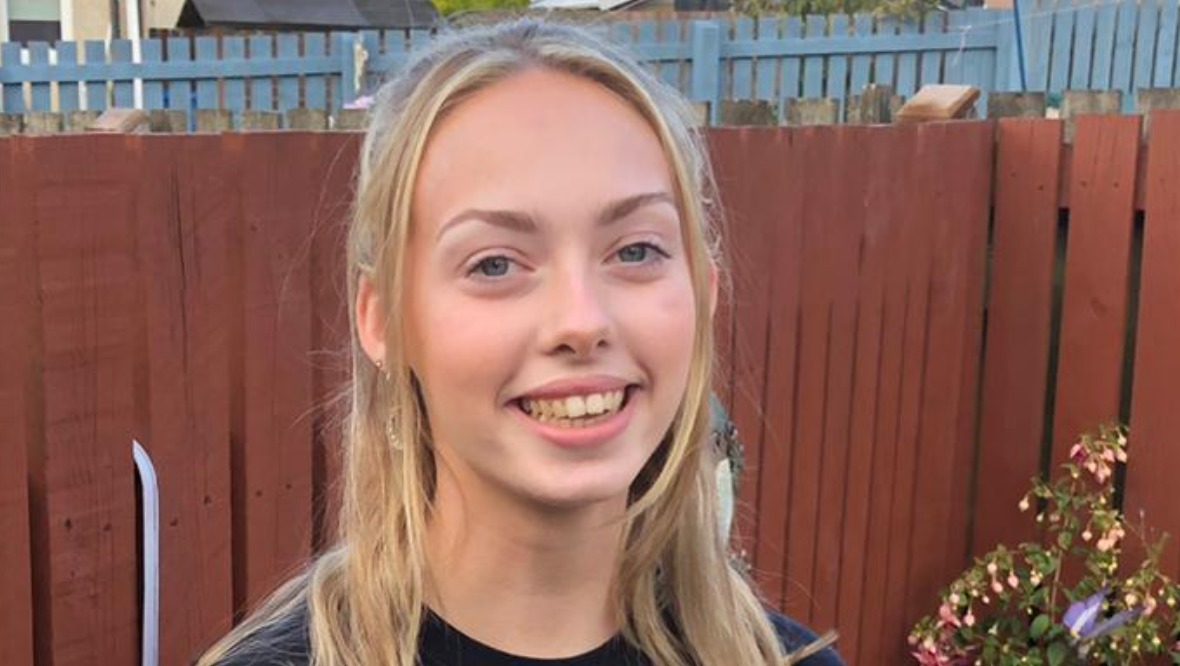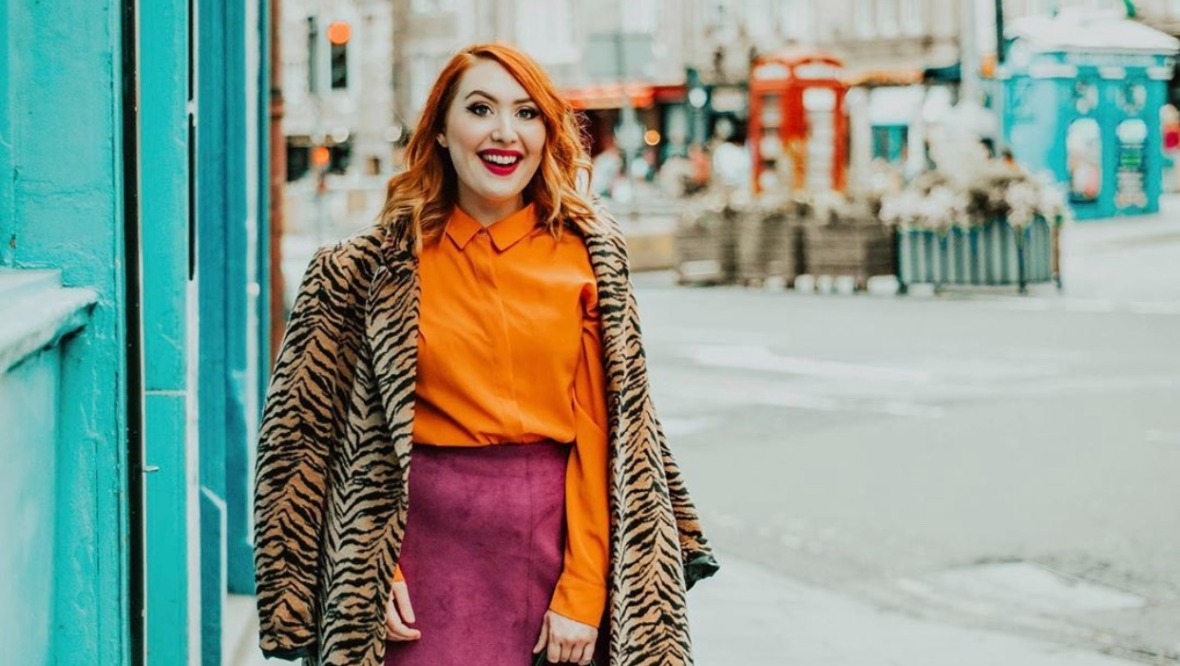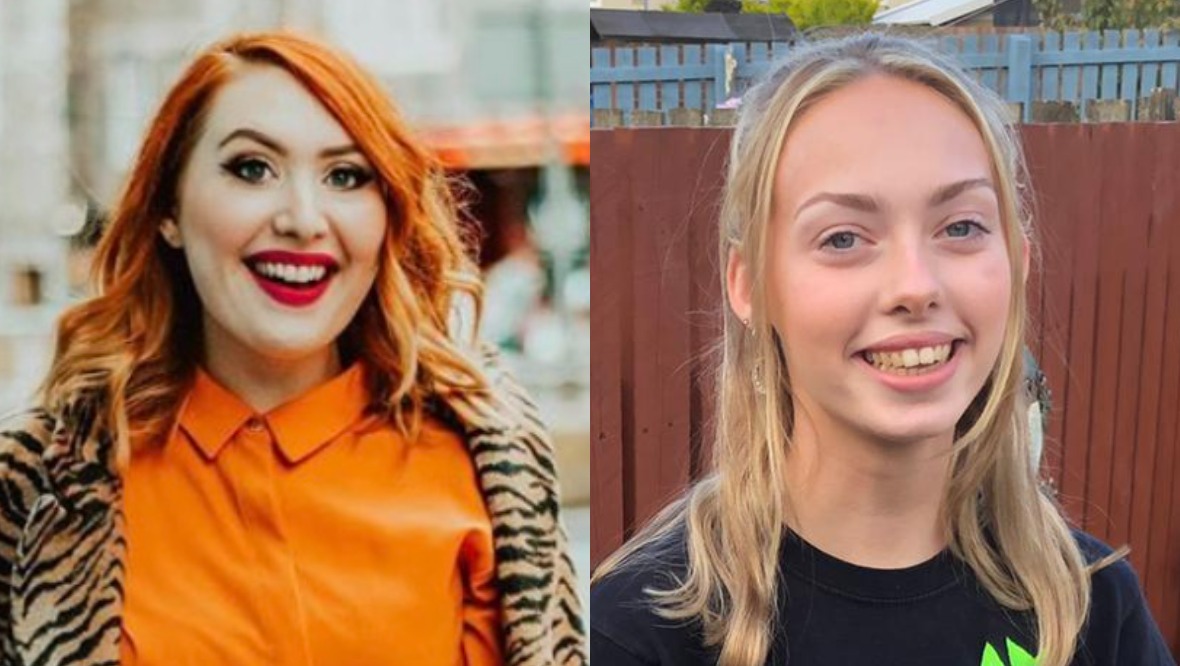Anxious. Stressed. Suicidal.
These are just some of the overwhelming emotions young people say they battled during the months of lockdown.
Compared to other age groups, they’ve been particularly affected. Some of the statistics from Mental Health Foundation Scotland are startling.
- Three quarters of mental health problems develop before the mid-20s;
- Findings show 18-24 year olds as more likely to report loneliness, not coping well and suicidal thoughts or feelings;
- Social media and the perception of the perfect lifestyle made these feelings worse in young women.
Ahead of World Mental Health Day on Saturday, STV News has been hearing from young women who say their social media had a negative and damaging effect on their mental health.
Leah Blake, student
Lockdown was so surreal. My anxiety built up at that time. I was just worried about exam results and what was going to happen in the future and if we’d get out of this situation. It was a nightmare. Especially in August with the exam results. It put my confidence down with schools. I felt that day I was done with everything and it put me into a depression. I got back out of it, luckily.
My results were the opposite of what I was expecting. It was a big shock.
 STV News
STV NewsIt was just a dark bubble I was in. I just gave up with everything. I was demotivated, I wouldn’t get out of my bed, I would just sit and cry and be miserable. A few days later I said I was going to build myself up and motivate myself again.
It was so much pressure. We had to rely on these results and that was our future… got my results and we were all angry about it. We got our predicated grades then and that helped me a bit.
At the start it was awful. I felt like, ‘this is it. We’re never getting back out again’. It was a weird feeling I’d never had before. Not normal at all. I’m so used to going out, going to work, socialising. It was kind of like we’d been imprisoned. It was an awful feeling that my mind was going crazy.
Mostly I was on my phone the full time. Especially the first two weeks. I was always on social media, always on seeing my friends, FaceTiming them. You saw other people going out breaking the rules and thought ‘that’s not fair’. I started to get a negative insight and it was jealousy on social media.
My head wasn’t in anything. I lost motivation to get out of bed. The first two weeks I was watching Netflix in bed. I saw people doing home workout routines and thought it might motivate me if I do that a few times a week. I ended up doing that most of the time because I hit a bad point and I wasn’t happy with anything. I used workouts to take my mind off everything and get myself back into a good place.
Older people think we are irresponsible. They think we’re only young and we’re not mature enough and we don’t work as much as they do. They need to remember we have mental health problems like anyone else who is older. We get misjudged a lot for what we do. We’re all feeling the same, we’re all going to feel miserable. I think we should get some more understanding, especially during lockdown, they mostly blamed it on us when the cases rose again. It wasn’t just us, everyone was mixing.
When I was on social media, to be honest, I put myself down and I had these high expectations to look a certain way and have a certain type of body type, this certain type of hair, the way I looked and how I acted. I was trying to find myself. I think social media has a negative impact on us, especially young women and a lot of younger girls because we’ll want to be this certain type of role model we see on social media.
There’s no way all girls are going to reach that high expectation of what we should look like. Everybody is beautiful in their own way, as they say, and we should try and embrace that instead of trying to meet that expectation.
I felt like we couldn’t get away from social media. That was the only thing we relied on and resorted to. It wasn’t any good for us and I think it affected our mental health more, seeing all this social media falseness. It was a nightmare, especially for girls.
This time, I’ll know what I’ve experienced and how to handle it a bit more and hopefully I can go through it a bit better this time if we do end up in another lockdown.
Alice Cruickshank, stylist and Influencer
My Instagram is fashion focused. It’s bold colourful and vibrant. I want people to embrace a more sustainable focus.
With lockdown it’s made us realise life isn’t perfect and we are all going through the same things. I think people really value people who seem very relatable and very honest. For me personally, my followers don’t follow me because I post this amazing lifestyle, they follow me because I try and make my personality come through.
 STV News
STV NewsI don’t know if lockdown necessarily changed the type of content I was posting but I think I stopped being quite as conscious about it being perfect. I think we all had to get more creative, shots were maybe at home, mirror selfies, it didn’t have to be polished and exciting. It was having fun with it. I did something called ‘in-fit of the day’ instead of ‘outfit of the day’. I was posting what I was wearing just in my house and people really responded to that because we all wanted something to look forward to and it was nice to put on a nice dress sitting at home.
There absolutely is pressure when you’re posting on Instagram, because you want to show yourself in the best light. Instagram is a highlights reel and that’s how I always look at it. When I post content, in my caption I’ll say ‘dressed up like this for the shot but right now I’m in my pyjamas’. I’ll just try and be honest about it. I see Instagram as a creative outlet, rather than somewhere to show myself looking amazing, even though I do like to get dressed up and that’s part of what it is.
With filters and face-editing apps, that has a lot to answer for why people feel they have to look a certain way. I think when you follow people that don’t subscribe to that and you are just looking for people who post about real life, their real outfits, what they really look like, you stop thinking about it as this perfect place. I just see it as somewhere to get inspiration from.
I think we do have an obligation to not overly tweak our pictures, to not Photoshop ourselves and change our face. With Instagram now there is a focus on a wider range of content. Now we have stories and reels. Who we follow is a choice. I never follow people who make me feel bad about myself and I don’t think I make people bad about themselves because they follow me.
With my photos it’s never just ‘post an outfit and run’. I’ll always write a caption I hope explains the image and that someone will benefit from and get information from. I do think there is more of a shift to that. If you are following loads of fast-fashion influencers and models and that makes you feel bad, you have the option to unfollow them, you have the option to put the phone down, the power is in your hands, you just have to choose to do that.
I do feel very aware of what I post. I feel I have to watch what I’m saying, how I perceive myself. At the end of the day, I’m going to post a picture of myself where I think I look good, I’m not going to post a pic where I don’t look nice. That’s not the nature of Instagram.
I don’t try and paint myself as having this perfect life because I definitely don’t, I have good days and bad days and while I want to create images that are colourful vibrant and make people feel happy and I won’t necessarily post if I feel bad today, I don’t feel like I have to be perfect to engage with people.
It’s content that feels quite raw that people engage with. People want to relate to you, they want to have that connection with people they follow. Having a connection to influencers is more important than it’s ever been.
We as Instagrammers can work to build that connection but you as someone using Instagram, if you have no connection to them and they don’t make you feel good about yourself, then just unfollow them. You don’t owe them anything, they’re not adding anything to your day, you don’t need to be consuming that sort of content.
What do the experts say?
Dr Heather Cleland Woods, psychology lecturer, Glasgow University
It’s about how we use social media. If we are browsing, look at Instagram influencers doing four workouts a day, I’d argue that that would make everyone feel lesser. We have to understand and be social media literate to understand what is actually going on there. When we can use social media to create communities, to create those social connections between people, then that’s a real positive.
We have had to go through a period of adjustment and we are going through a period of adjustment. Our young people, who have been taken out of those social groups and being offline, physically in the same space and being able to interact with those people, that is really important and something we have to consider when we are thinking about closing schools and really thinking about how we support our young people through this.
Perhaps to a young pupil, where peer interactions are so important in terms of their development and the way their brains are developing, it’s really important we have these discussions with our young people and increase this social media literacy and understand how we engage with social media. It is a social interaction and how we engage with that is so important.




























